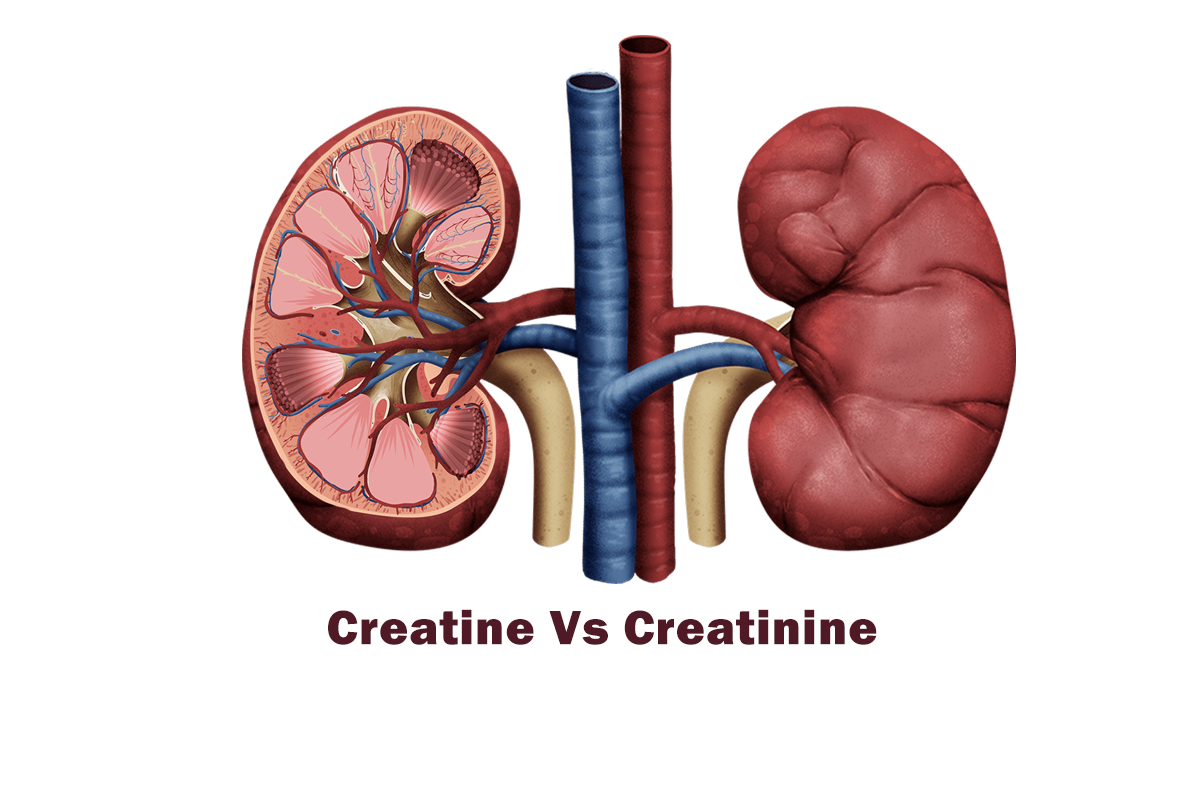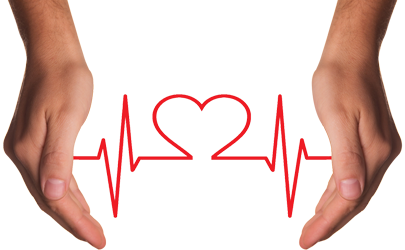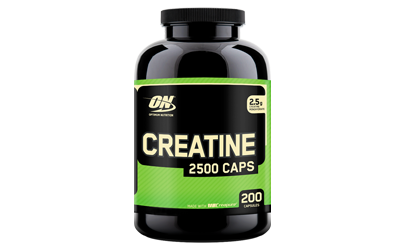
Creatine vs Creatinine: Key Differences, Benefits, and Myths Debunked
Understanding Creatine and Creatinine
Creatine and creatinine are often confused due to their similar names, but they serve entirely different roles in the body.
- Creatine is a naturally occurring compound found in muscles and the brain, primarily used for quick energy production during high-intensity activities like weightlifting or sprinting. It is also a popular sports supplement.
- Creatinine, on the other hand, is a waste product formed from the breakdown of creatine and muscle metabolism. It is filtered out by the kidneys and excreted in urine.
Key Differences Between Creatine and Creatinine
| Aspect | Creatine | Creatinine |
|---|---|---|
| Function | Energy production in muscles | Waste product of muscle metabolism |
| Source | Synthesized in liver/kidneys, obtained from diet (meat, fish) | Byproduct of creatine breakdown |
| Supplement Use | Yes (improves performance) | No (indicator of kidney function) |
| Kidney Role | Processed into creatinine | Filtered and excreted by kidneys |
| Medical Relevance | Used for muscle strength | Measured to assess kidney health |
Advantages and Disadvantages
Creatine
- Enhances athletic performance
- Supports muscle growth and recovery
- May improve brain function
- Naturally found in red meat and fish
- Can cause water retention (temporary weight gain)
- May lead to digestive discomfort in high doses
- Misconceptions about kidney damage (debunked by research)
✅ Pros:
❌ Cons:
Creatinine
✅ Pros:
- Helps monitor kidney function (blood/urine tests)
- Indicates muscle metabolism rate
❌ Cons:
How Creatine and Creatinine Are Naturally Produced
- Creatine Synthesis: Produced in the liver and kidneys from amino acids (arginine, glycine, methionine).
- Creatinine Formation: Generated when creatine is broken down in muscles (~2% of creatine converts daily).
Kidney’s Role in Creatinine Clearance
The kidneys filter creatinine from the blood and excrete it in urine. Elevated creatinine levels in blood tests may indicate impaired kidney function, but creatine supplementation does not harm healthy kidneys.
Myths About Creatine Supplements
- ❌ "Creatine damages kidneys" – False; studies show no harm in healthy individuals.
- ❌ "Only bodybuilders need creatine" – It benefits athletes, older adults, and even cognitive health.
- ❌ "Creatine causes dehydration" – Proper hydration prevents any issues.
Natural Sources of Creatine
- Beef
- Pork
- Fish (salmon, tuna)
- Chicken (smaller amounts)
Vegans/vegetarians may have lower creatine stores and can benefit from supplements.
How to Naturally Reduce Creatinine Levels: 10 Effective Tips
High creatinine levels can indicate kidney stress or dysfunction. While medical treatment may be necessary in severe cases, certain lifestyle and dietary changes can help lower creatinine naturally. Here’s how:
- ✅ Drink enough water (2-3 liters/day) to help kidneys flush out creatinine.
- ⚠️ Avoid excessive water intake (can strain kidneys in some cases).
- ✔ Give a natural glow
- ❌ Limit: Red meat, poultry, fish, eggs, and dairy (they increase creatinine).
- ✅ Opt for plant-based proteins (beans, lentils, tofu) in moderation.
- ✅ Fiber helps remove toxins and may improve kidney function.
- 🍏 Best sources: Oats, apples, carrots, whole grains, chia seeds.
- ❌ Excess salt raises blood pressure, worsening kidney strain.
- ✅ Choose herbs/spices instead of table salt.
- 💊 Supplemental creatine converts to creatinine, raising levels.
- 🚫 Skip bodybuilding creatine if creatinine is already high.
- 🏋️ Intense exercise breaks down muscles, increasing creatinine.
- 🚶 Opt for light activities like walking, yoga, or swimming.
- Nettle leaf tea (natural diuretic)
- Chamomile tea (anti-inflammatory)
- Dandelion root (may help detox kidneys)
- 🩺 Diabetes & hypertension damage kidneys, raising creatinine.
- ✅ Monitor levels and follow medical advice.
- 😴 Poor sleep stresses kidneys, affecting filtration.
- 🌙 Prioritize rest for better kidney health.
- 💊 NSAIDs can harm kidneys over time, increasing creatinine.
- ✅ Use alternatives (acetaminophen in moderation).
1. Stay Hydrated (But Avoid Overhydration)
2. Reduce High-Protein Foods
3. Eat More Fiber-Rich Foods
4. Lower Sodium Intake
5. Avoid Creatine Supplements
6. Exercise Moderately (Avoid Extreme Workouts)
7. Try Herbal Remedies (Consult a Doctor First)
🌿 Some herbs may support kidney function:
8. Control Blood Sugar & Blood Pressure
9. Get Enough Sleep (7-9 Hours/Night)
10. Limit NSAIDs (Painkillers Like Ibuprofen)
Final Thoughts
While creatine boosts energy and performance, creatinine is simply a waste marker for kidney health. Understanding their differences helps debunk myths and optimize health strategies.
Important Notice: This article is for informational purposes only and does not replace professional medical advice. Consult a healthcare professional before making any changes to your diet, exercise, or supplement regimen.
⚠️ Warning:
By continuing to read this article, you acknowledge that the author and publisher are not liable for any direct, indirect, or consequential effects resulting from the use of this information.
Disclosure: As an Amazon Associate, We earn from qualifying purchases at no extra cost to you. Product prices and availability are accurate as of the date/time indicated and are subject to change.
Lactic Acid
HERE
LEAVE A REPLY
Your email address will not be published. Required fields are marked *
Fast Delivery
Across West & East India
safe payment
100% Secure Payment
Online Discount
Add Multi-buy Discount
Help Center
Dedicated 24/7 Support
Curated items
From Handpicked Sellers





LEAVE A COMMENTs
Jessica Roy
"I’ve always heard ‘creatine destroys kidneys’—thanks for debunking that with actual science. Will share this with my gym buddies!"
Monica Denni
"Wow, I’ve been confusing these two for years! Finally, an article that explains the difference clearly. The kidney function part was eye-opening. Thank you!"
Laura McCann
"My creatinine levels are slightly high. Your tips on hydration and protein reduction are gold. Bookmarking this!"